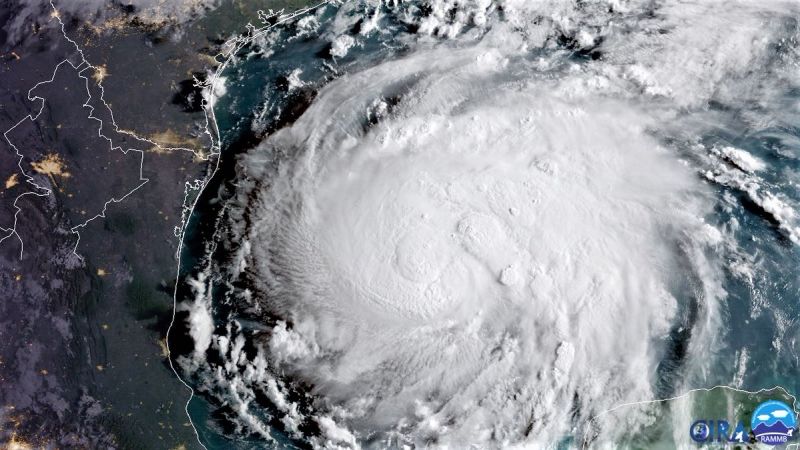Monday, August 28, 2017
(August 28, 2017) — S&P Global Platts reports that roughly 2.2 MMbbld of refining capacity has been shuttered. Houston refineries began shutting down Sunday because of flooding. Refiners have not reported any damage so far. The following plants have been, or were in the process of, shutting down Sunday:
Exxon Mobil, Baytown; Valero, Corpus Christi; Citgo, Corpus Christi; Flint Hills, Corpus Christi; Magellan, Corpus Christi; Buckeye, Corpus Christi, Shell, Deer Park Pasadena, Pasadena; Phillips 66, Sweeny; and Valero, Three Rivers. The Texas Gulf Coast is home to nearly 5 MMbbld of refining capacity, while the Louisiana Gulf Coast is home to almost 4 MMbbld of capacity, notes S&P Global Platts, citing the Energy Information Administration (EIA).
Oil and gas companies on the Texas Gulf Coast were dealing Sunday and Monday with the impact of Hurricane Harvey, which made landfall early Saturday near Corpus Christi. The storm produced torrential rains measured in feet, not inches, and catastrophic flooding. The National Hurricane Center said Harvey is expected to produce additional rainfall accumulations of 15 to 25 inches through Friday over the middle and upper Texas coast, including the Houston/Galveston metropolitan area. Isolated storm totals may reach 50 inches in this region.
Earlier, some offshore oil and gas operators evacuated platforms and rigs. Platts observes that with so much refining and production capacity offline, refined products supplies should tighten, and with major Texas Gulf Coast ports of Corpus Christi and Houston closed to vessel traffic, imports and exports will be delayed. Texas is also a major source of refined products to the Northeast via the Colonial Pipeline.
Corpus Christi area ports remain closed, and so far there are no reported oil spills or damage to storage tanks. The port of Brownsville, located further south on the Texas/Mexico border, has reopened. The four major ports in the Houston-Galveston area complex—Port of Houston, Port of Texas City, Port of Galveston, and Port of Freeport—were closed to all inbound and outbound traffic. Further, Brazos pilots at the Port of Freeport said some locations were “shoaling” quickly, meaning the port will be filling with silt and clay. Water depth is getting lower because silt is being washed into the bay and building up the bottom.
S&P Global Platts said Monday that further along the Texas coast, pilots on the Sabine Pass and at Port Neches reported normal traffic. Lake Charles, La. also confirmed normal traffic flows, but service was expected to be interrupted by weather. Phillips 66 suspended operations at its Freeport, Texas terminal, which will impact LPG exports and crude imports. The Freeport LPG export terminal started operations in December and can export 150,000 bbldd.
Meanwhile, offshore operators in the Gulf of Mexico have shut in more than 378,633 bbld of oil output, 21.64% of total production, and 0.827 Bcfd of natural gas output, 25.71% of production, Platts reports. Onshore, oil operators have shut in what may amount to hundreds or even thousands of wells in the Eagle Ford Shale in South Texas.
Exxon Mobil, Baytown; Valero, Corpus Christi; Citgo, Corpus Christi; Flint Hills, Corpus Christi; Magellan, Corpus Christi; Buckeye, Corpus Christi, Shell, Deer Park Pasadena, Pasadena; Phillips 66, Sweeny; and Valero, Three Rivers. The Texas Gulf Coast is home to nearly 5 MMbbld of refining capacity, while the Louisiana Gulf Coast is home to almost 4 MMbbld of capacity, notes S&P Global Platts, citing the Energy Information Administration (EIA).

Oil and gas companies on the Texas Gulf Coast were dealing Sunday and Monday with the impact of Hurricane Harvey, which made landfall early Saturday near Corpus Christi. The storm produced torrential rains measured in feet, not inches, and catastrophic flooding. The National Hurricane Center said Harvey is expected to produce additional rainfall accumulations of 15 to 25 inches through Friday over the middle and upper Texas coast, including the Houston/Galveston metropolitan area. Isolated storm totals may reach 50 inches in this region.
Earlier, some offshore oil and gas operators evacuated platforms and rigs. Platts observes that with so much refining and production capacity offline, refined products supplies should tighten, and with major Texas Gulf Coast ports of Corpus Christi and Houston closed to vessel traffic, imports and exports will be delayed. Texas is also a major source of refined products to the Northeast via the Colonial Pipeline.
Corpus Christi area ports remain closed, and so far there are no reported oil spills or damage to storage tanks. The port of Brownsville, located further south on the Texas/Mexico border, has reopened. The four major ports in the Houston-Galveston area complex—Port of Houston, Port of Texas City, Port of Galveston, and Port of Freeport—were closed to all inbound and outbound traffic. Further, Brazos pilots at the Port of Freeport said some locations were “shoaling” quickly, meaning the port will be filling with silt and clay. Water depth is getting lower because silt is being washed into the bay and building up the bottom.
S&P Global Platts said Monday that further along the Texas coast, pilots on the Sabine Pass and at Port Neches reported normal traffic. Lake Charles, La. also confirmed normal traffic flows, but service was expected to be interrupted by weather. Phillips 66 suspended operations at its Freeport, Texas terminal, which will impact LPG exports and crude imports. The Freeport LPG export terminal started operations in December and can export 150,000 bbldd.
Meanwhile, offshore operators in the Gulf of Mexico have shut in more than 378,633 bbld of oil output, 21.64% of total production, and 0.827 Bcfd of natural gas output, 25.71% of production, Platts reports. Onshore, oil operators have shut in what may amount to hundreds or even thousands of wells in the Eagle Ford Shale in South Texas.

